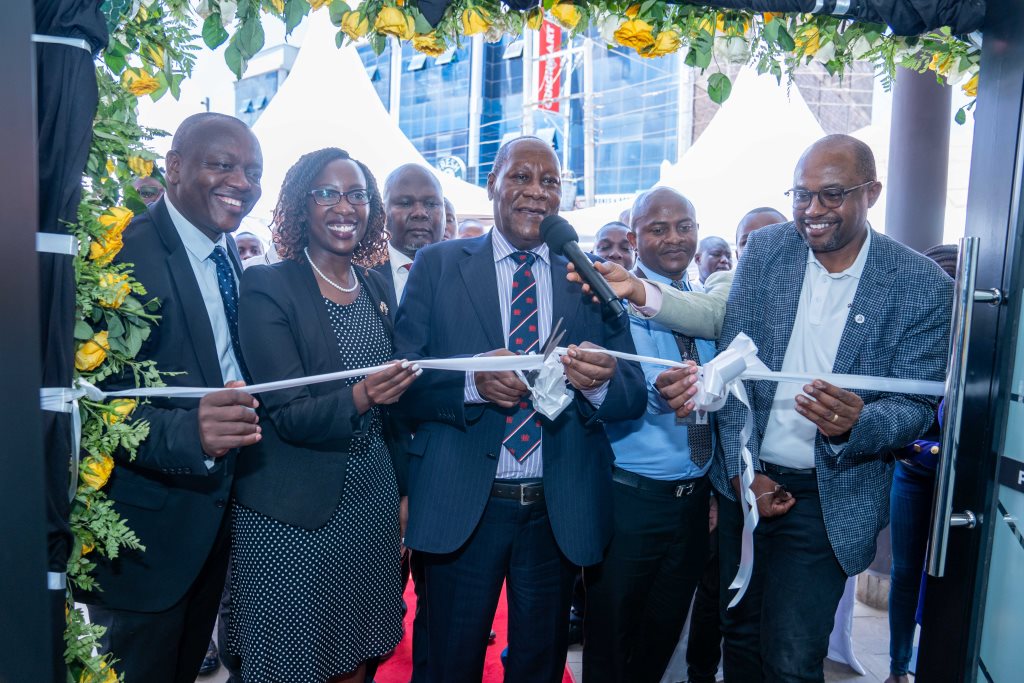Small and medium-sized enterprises (SMEs) play a vital role in economic development, offering employment opportunities and driving innovation. To enhance their growth potential and ensure sustainability in changing market dynamics, consistent capacity building becomes crucial. Recognizing this need, NCBA, in partnership with Strathmore Business School (SBS), has initiated an impactful Enterprise Development Program (EDP) aimed at empowering entrepreneurs through targeted training.
In a recent development, 38 SME proprietors drawn from different industries including manufacturing, agribusiness, logistics, retail, and professional services successfully completed this transformative program. Through a structured learning approach, this initiative addresses the real challenges facing small businesses, guiding them toward strategic thinking, leadership development, and operational efficiency. With an eye on the future, NCBA continues to champion efforts that support enterprise development, focusing on long-term business viability beyond financial assistance.
NCBA’s Enterprise Development Program – A Strategic Initiative for SMEs
NCBA’s SME strategy places capacity building at its core. The Enterprise Development Program is designed to provide essential business insights that help entrepreneurs lead with confidence, even in times of economic pressure. Rather than focusing solely on financial lending, the bank aims to nurture its clients into resilient business leaders capable of growing enterprises that contribute meaningfully to the economy.
This program aligns with NCBA’s broader mission of advancing sustainable entrepreneurship. The bank’s leadership reiterates its unwavering dedication to supporting local business owners not just with capital, but with knowledge, guidance, and access to networks that fuel innovation and expansion.
A Collaborative Effort for Lasting Impact
Role of Strathmore Business School in the Program
Strathmore Business School brings academic excellence and contextualized learning to this collaboration. The six-month program blends theoretical knowledge with practical application. The curriculum integrates modern business disciplines including digital transformation, marketing, financial planning, operations management, and business model innovation. The result is a learning journey that mirrors real-world challenges, equipping entrepreneurs to adapt, strategize, and innovate.
Participants gain access to faculty experts and engage in group-based learning that promotes peer interaction, exchange of experiences, and the opportunity to build lasting business relationships. This approach amplifies the program’s effectiveness and opens avenues for continued support long after graduation.

Graduates Reflect Sectoral Diversity and Practical Success
Entrepreneurial Sectors Represented
The recent cohort of 38 SME owners represented a diverse range of industries. These included:
- Manufacturing
- Agribusiness
- Logistics and Transport
- Retail and Wholesale Trade
- Professional and Consultancy Services
Such diversity ensures that the insights shared during the program are multidimensional, providing participants with exposure to challenges and innovations that extend beyond their industries. It also reflects NCBA’s inclusive approach to SME development, providing tailored support to enterprises of all kinds.
Financial Support Extended Through Strategic Partnerships
The EDP operates in conjunction with NCBA’s broader financial empowerment initiatives. Following the renewal of a decade-long partnership with the African Guarantee Fund (AGF), NCBA doubled its lending capacity to SMEs from KES 1.5 billion to KES 3 billion. This funding pool is designed to address persistent barriers faced by entrepreneurs, particularly those related to access to affordable credit and flexible repayment options.
By integrating learning with improved access to finance, NCBA ensures that participants not only gain knowledge but also possess the financial tools to effectively implement their business strategies. This dual approach enhances their readiness to scale operations, modernize systems, and compete in evolving markets.
Learning Outcomes Shaping Business Futures
Strategic and Leadership Development
Participants leave the EDP with sharpened leadership capabilities and strategic frameworks that enhance their approach to growth, risk, and sustainability. Emphasis is placed on decision-making, vision-setting, and systems thinking—critical traits for entrepreneurs steering growing ventures.
Additionally, the real-time application of classroom insights to individual businesses ensures that the learning is not abstract. Business owners learn how to evaluate their financial health, explore new revenue models, and adopt digital tools to optimise performance.
Peer Learning and Business Networking
The program encourages knowledge exchange through structured peer learning. Entrepreneurs engage with fellow business leaders who share similar goals but operate in varied environments. This exposure helps expand their perspective and introduces collaborative possibilities.
The cohort model fosters camaraderie and trust, leading to mentorship opportunities, strategic partnerships, and information sharing that continue beyond the program.

The Bigger Picture – Long-Term Economic Empowerment
By focusing on the development of human capital within the SME sector, NCBA and SBS are contributing to a more substantial business ecosystem. Empowered entrepreneurs create jobs, inspire innovation, and influence supply chains. As more cohorts graduate from this initiative, the ripple effect of their enhanced capacity can uplift communities, boost productivity, and stimulate national economic resilience.
The success of the program is not measured only by course completion but by the tangible transformation seen in participant businesses months and years later.
Application Requirements for Future Cohorts
Entrepreneurs interested in joining upcoming EDP sessions must meet the following criteria:
- Be an active NCBA customer with a business account operational for at least six months.
- Own a business in operation for at least two to three years, employing more than three people.
- Have an annual turnover of KES 3 million or more
- Be the majority shareholder and principal decision-maker in the business.
The following program intake is scheduled to begin on 10th June 2025. NCBA encourages eligible customers to apply early and take advantage of the transformative learning experience.
FAQ’s
What is the Enterprise Development Program (EDP)?
The EDP is a six-month capacity-building initiative by NCBA and Strathmore Business School designed to equip SME owners with practical business skills and strategic thinking.
Who is eligible to join the program?
Applicants must be NCBA customers with a qualifying business history and turnover, plus meet criteria related to business age, employment size, and decision-making role.
What are the main benefits of the program?
Participants gain leadership insights, financial management skills, marketing strategies, and access to a network of professionals and mentors.
How does the program support financing needs?
Through its partnership with the African Guarantee Fund, NCBA has enhanced its lending capacity, making financing more accessible for graduates of the EDP.
When does the next cohort begin?
The upcoming cohort for the Enterprise Development Program begins on 10th June 2025, and applications are currently open.

Conclusion
Through the Enterprise Development Program, NCBA and Strathmore Business School are laying a strong foundation for the growth of SMEs. By investing in entrepreneurial education and integrating financial support, they are shaping businesses capable of thriving in dynamic markets. With more business owners set to join future cohorts, this initiative continues to make a lasting mark on Kenya’s economic landscape.






